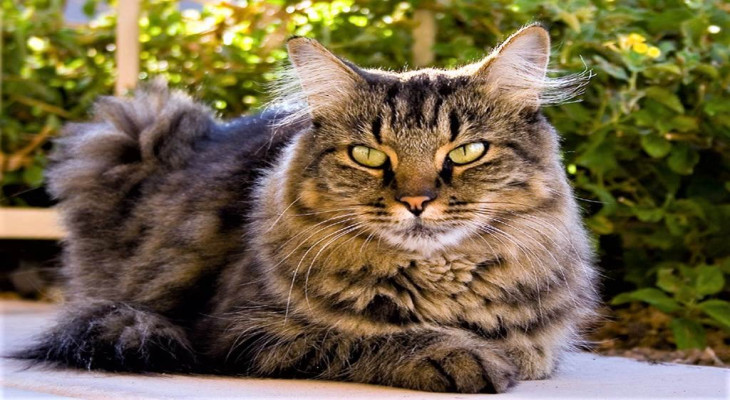Cat Care
 Sep 01, 2023
Sep 01, 2023
How to Care for Your Cat with Kidney Disease
 Sep 01, 2023
Sep 01, 2023

Kidney disease is one of the most common health problems in cats, especially as they age. The kidneys are vital organs that filter waste products and toxins from the blood, regulate fluid and electrolyte balance, produce hormones, and maintain blood pressure.
When the kidneys are damaged or fail to function properly, cats can develop a variety of symptoms and complications that can affect their quality and length of life.
There are two main types of kidney disease in cats: acute and chronic. Acute kidney disease occurs suddenly and is often caused by factors such as infections, toxins, trauma, or blockages. Chronic kidney disease develops gradually over time and is usually the result of aging or other underlying conditions. Both types of kidney disease can be diagnosed by blood tests and urine analysis that measure the levels of certain substances in the cat's body.
If your cat has been diagnosed with kidney disease, you may feel overwhelmed and worried about how to care for your feline friend. However, with proper treatment and management, you can help your cat live longer and happier with kidney disease.
Here are some tips on how to care for your cat with kidney disease:
• Provide adequate hydration: One of the most important aspects of caring for a cat with kidney disease is to ensure that they stay hydrated. Cats with kidney disease tend to lose water through increased urination and may also have reduced thirst.
Dehydration can worsen kidney function and cause other problems such as constipation, urinary tract infections, and kidney stones. Therefore, you should provide your cat with fresh water at all times and encourage them to drink more by adding water to their food, offering wet food, using a fountain or a dripping faucet, or adding flavorings such as tuna juice or chicken broth to their water.
• Feed a special diet: Another key factor in caring for a cat with kidney disease is to feed them a special diet that meets their nutritional needs and reduces the workload on their kidneys. Cats with kidney disease need a diet that is low in protein, phosphorus, and sodium, but high in water, fiber, and antioxidants.
Protein is essential for cats, but too much protein can produce more waste products that the kidneys have to filter. Phosphorus is a mineral that can accumulate in the blood and cause damage to the kidneys and other organs. Sodium is a salt that can increase blood pressure and fluid retention, which can worsen kidney function.
Water, fiber, and antioxidants can help flush out toxins, prevent constipation, and protect the kidneys from oxidative stress. You should consult with your veterinarian about the best diet for your cat with kidney disease. They may recommend a prescription diet that is specially formulated for cats with kidney disease or a homemade diet that is balanced and appropriate for your cat's condition.
Conditions:
• Give medications as prescribed:
Depending on the type, stage, and cause of your cat's kidney disease, your veterinarian may prescribe certain medications to treat or prevent complications. These medications may include:
• Antihypertensives:
These drugs lower blood pressure and reduce the risk of heart and kidney damage.
• Antiemetics:
These drugs prevent or reduce nausea and vomiting, which are common symptoms of kidney disease.
• Antacids:
These drugs neutralize excess stomach acid and prevent or treat ulcers, which are common complications of kidney disease.
• Erythropoietin:
This hormone stimulates the production of red blood cells, which can be low in cats with kidney disease due to anemia.
• Antibiotics:
These drugs treat or prevent infections that can occur in cats with kidney disease due to a weakened immune system.
• Analgesics:
These drugs relieve pain that may be associated with kidney disease or its treatments.
You should follow your veterinarian's instructions on how to give these medications to your cat. You should also monitor your cat's response to these medications and report any side effects or changes in their condition to your veterinarian.
• Monitor your cat's condition:
Caring for a cat with kidney disease also involves monitoring their condition regularly and adjusting their treatment accordingly. You should keep track of your cat's weight, appetite, water intake, urine output, behavior, and symptoms. You should also take your cat to the veterinarian for routine check-ups and tests to assess their kidney function and overall health.
Your veterinarian may need to change your cat's medication dosage or diet based on their test results or clinical signs. You should also watch out for any signs of worsening or new problems, such as difficulty breathing, seizures, weakness, or coma. These could indicate a medical emergency that requires immediate attention.
• Provide comfort and support:
Finally, caring for a cat with kidney disease also means providing them with comfort and support throughout their journey. You should make sure that your cat has a cozy and stress-free environment where they can rest and relax.
You should also spend quality time with your cat and show them affection and love. You should also be prepared for the possibility of euthanasia if your cat's quality of life deteriorates to the point where they are suffering or have no hope of recovery. You should discuss this option with your veterinarian and your family and make the best decision for your cat.
Conclusion
Kidney disease in cats is a serious but manageable condition that requires early diagnosis and proper care. By following these tips, you can help your cat live longer and happier with kidney disease. For more information about kidney disease in cats, visit [PetMD] or [Cornell Feline Health Center].




